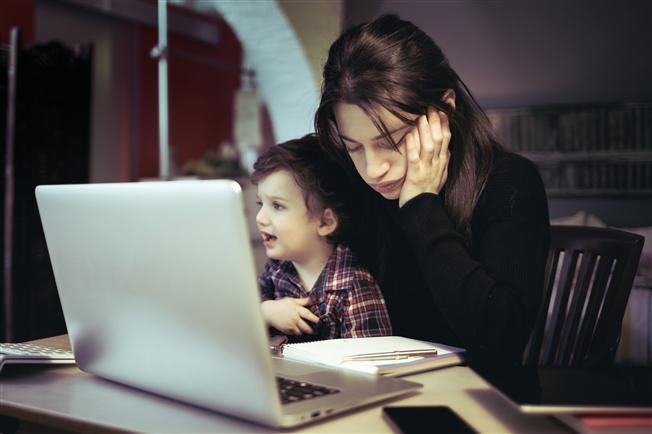Sleep tips for parents during Daylight Saving Time

For parents, "falling back" at the end of Daylight Saving Time isn't as easy as gaining an extra hour of sleep. Instead, it means cranky kids and difficulty adjusting to a new schedule.
While there's bound to be a few battles over bedtime during this time, don't despair. There are a few things you can do to help make your transition to the end of Daylight Saving Time go more smoothly.
Make lighting changes
Lighter mornings may sound like a good thing, but not if you or your kids are trying to sleep in or if you have children who aren't school-age and don't set an alarm. In response, consider blackout or darkened curtains to help keep light from creeping in.
Likewise, if you're trying to stay awake during darker evenings, try light therapy. In addition to helping improve your sleep, light therapy can ease the symptoms of seasonal affective disorder, too.
Limit the technology. No, really.
You already know how watching TV or staring at your cell phone before bed can impact your sleep quality. Unfortunately, it's not always easy to go tech-free before bed.
"Limiting technology and your exposure to blue light really is one of the best and most effective ways to improve your sleep quality. If we want to sleep well, we should make this a priority all year," says Gaurav Patel, MD, sleep medicine specialist at Riddle Hospital, part of Main Line Health. "However, it is especially important during Daylight Saving Time. It's one less thing that can contribute to worsened sleep quality."
Limiting technology isn't just important for parents—it's important for kids, too. Nemours pediatrician Joannie Yeh, MD, explains what can happen when screen time outnumbers sleep time.
Take a family walk
Want to improve your sleep? Try exercise. Not only will a workout require you to expend energy and tire you out, it can also reduce feelings of stress and anxiety like, say, the ones you might experience as a result of dealing with a child whose sleep cycle has recently changed.
You don't need an hour in the gym or a personal training session to reap the benefits of a good workout. Instead, try a walk around the neighborhood after school as a family. It will improve your sleep, give you some extra time in the sunshine and allow for time together as a family.
Try low-dose melatonin
Many people rely on melatonin, an over-the-counter supplement, to help them fall and stay asleep. This can come in handy during Daylight Saving Time, but Dr. Patel cautions against using it too often.
"When taken at very high doses or very frequently, melatonin can lead to uncomfortable side effects like nausea, headaches or irritability. In the end, these are what keep us from a good night's sleep," he explains. "Start with the smallest dose of melatonin and talk to your doctor if you're still having trouble sleeping."
And remember: melatonin shouldn't be part of your bedtime routine. Save this supplement for nights when you're struggling insomnia, and use it sparingly.
Come to terms with crankiness
If you're having a hard time coping with the time change, so is your little one. Understand that it may take a few days for them to adjust to a new schedule, and allow time for an extra nap, if necessary.
Get good sleep. Every night.
It's not uncommon to have a hard time adjusting to time and daylight changes, but if you or your child regularly having a difficult time falling or staying asleep, it may be time for an appointment with a sleep medicine specialist.
We have several sleep centers in the Philadelphia suburbs, which means you can pick the location that's best for you when scheduling a sleep study. If you think your child may have a sleep disorder, our Newtown Square and Paoli locations offer specialized pediatric sleep studies and sleep medicine services in kid-friendly environments.
To schedule a sleep study at Main Line Health, call 484.227.4167 (Media), 484.337.3300 (Newtown Square*), 484.565.1358 (Paoli*) or 484.476.3400 (Wynnewood).
*Locations offering diagnostic sleep testing for children
 Content you want, delivered to your inbox
Content you want, delivered to your inbox
Want to get the latest health and wellness articles delivered right to your inbox?
Subscribe to the Well Ahead Newsletter.
